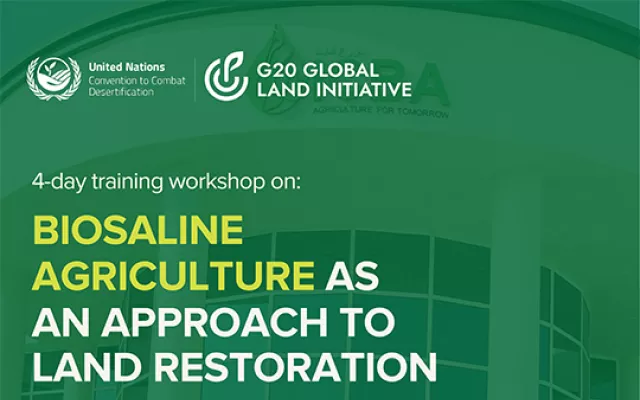ICBA quinoa genotypes get go-ahead for commercial cultivation in Morocco
Five quinoa genotypes from the International Center for Biosaline Agriculture (ICBA) have been recently registered and certified as varieties by Morocco’s National Food Safety Office (L'Office National de Sécurité Sanitaire des Produits Alimentaires) and approved for commercial cultivation.
As a result, ICBA has signed a material transfer agreement with Ben Rim Farm on commercial seed production and grain processing of the varieties (ICBA-Q1, ICBA-Q2, ICBA-Q3, ICBA-Q4, and ICBA-Q5) in the country.
The certification is a significant milestone as it paves the way for developing quinoa value chains in the country. This is a result of consistently good performance of the varieties under local conditions during trials conducted as part of ICBA’s Rehamna quinoa project between 2017 and 2020.
Funded by Canada's International Development Research Centre (IDRC/CRDI), the project is implemented by ICBA in collaboration with Mohammed VI Polytechnic University and the Ministry of Agriculture, Fisheries, Rural Development, Water and Forests of Morocco.
The project aims to improve food security and incomes of smallholder farmers in marginal areas of Morocco through the production, consumption and sale of high-value stress-tolerant quinoa varieties. The project is helping farmers, especially rural women, to produce and market quinoa-based products. For example, several associations have started producing value-added quinoa-based products such as couscous. The 3ème millénaire (3rd millennium) cooperative is one of such associations. It is collectively managed by over 30 rural women and girls who make a living by producing and selling several products from quinoa and other crops.
Under the project, ICBA and local partners are also working with farmers' associations such as Chabab M'khalif, which has also benefited from the introduction of best cropping practices and mechanized tools.
The project has also assisted several agri-business start-ups such as Amendy Food in promoting quinoa at the national level, establishing a seed production system and developing processing tools in collaboration with Ben Rim Farm.
Moreover, as part of the project, several training courses have been organized since 2017 on quinoa production and organic farming for women, farmers and extension specialists of regional agricultural institutions in Rehamna Province.
The project raises greater awareness among farmers, relevant government entities, the private sector, and the general public about quinoa's benefits.
It falls within the framework of Pillar 2 of the Morocco Green Plan, which focuses on the modernization of agriculture with social impact and investment in social initiatives to combat rural poverty. It supports smallholder agriculture in areas with fragile ecosystems, aiming to improve the incomes of the most vulnerable farmers.










